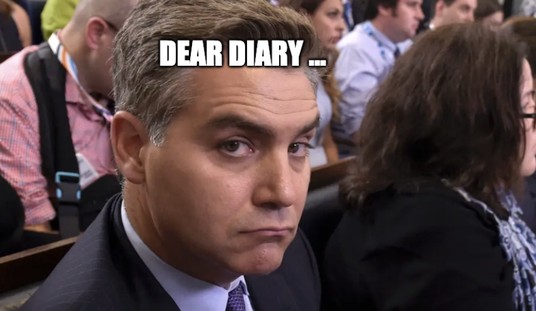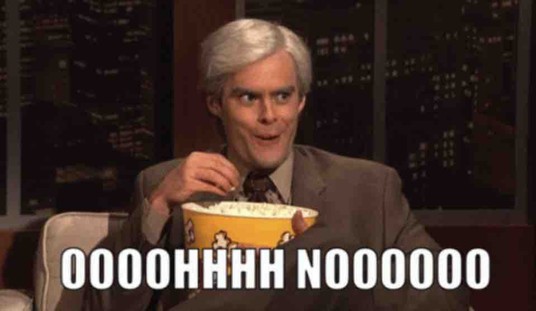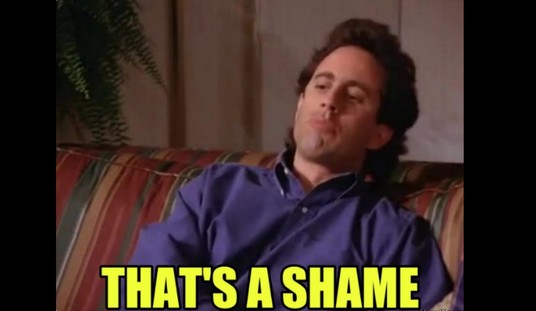A graphic tweeted by @HouseGOP shows the toll high inflation is taking on consumers through price increases of certain commodities during President Joe Biden's tenure.
Americans are paying more for just about everything because of #Bidenflation pic.twitter.com/TbGLoDf6Vp
— House Republicans (@HouseGOP) June 16, 2024
The graphic in the preceding tweet shows that electricity is 29 percent more expensive; that baby food is up in price by more than 28 percent; that butter is priced more than 27 more expensively; and that rent is upwards of 21 percent steeper in price, all during President Joe Biden's tenure in the White House. The overall strain (or tax, to use a term that fits this subject appropriately) on the macro economy by such price increases would be difficult to quantify.
Inflation measures price increases of goods and services in an economy. The Consumer Price Index, a figure published by the Bureau of Labor Statistics that measures inflation, is 3.3 percent as of May 2024 from May 2023. That CPI measurement indicates that the same goods and services are priced 3.3 percent more expensively than they were a year ago. The Federal Reserve repeatedly states that 2 percent is its goal for inflation. There are to date 40 annual CPI recordings during Biden's time in office, the first such CPI recording being in February of 2021. Of those 40, 7 are 8 percent or higher; 12 (a full year) are 7 percent or higher; 17 are 6 percent or higher; 21 are 5 percent or higher; 26 are 4 percent or higher; and two of those 40 recordings, of the first two months of President Joe Biden's tenure, are less than 3 percent.
A dictionary does not supply an adequate amount of adjectives with the appropriate connotations to describe the high inflation that is occurring under President Biden, and the problem of it persists because of failed economic policies. Democrats are empowered with most federal government legislative ability at the current moment, but they do not attempt to apply working solutions to remedy what is an economic disaster.
The Democrat agenda pushes spending, spending, and more spending. That push continues throughout Biden's presidency, despite egregiously high inflation. If high inflation is too much money chasing too few goods and services, it stands to reason that cutting spending is a method of inflation reduction. But Democrats seek to spend more government dollars.
The Democrat agenda includes a push for higher taxes. High taxes affect everyone and everything in an economy. An employee is personally paid less of his earned income due to a higher tax rate, and the employment options are more limited because an increasing amount of corporate revenue is going to paying taxes rather than payroll. Higher taxes force a person living paycheck-to-paycheck to make increasingly basic economic decisions. A consumer must eliminate purchases from her budget because the dollars that otherwise are used for such purchases are paid in taxes. High taxes result in fewer buying options being available to consumers because some entities are taxed out of business and because investors who would otherwise put capital behind innovative, entrepreneurial endeavors and start-ups are paying more of that capital in taxes. There is an impact on the quality of goods produced and services offered by businesses because less money is available in corporate budgets to be spent toward that end. The cuts that are induced by higher taxes produce ripple effects throughout the economy and permeate the entirety of it as a result.
In their effort to sell tax increases, Democrats often sing a political hymn that goes like this, "Taxes will not be raised on anyone making less than (insert amount here)." But that does not account for the reduced take-home pay for the employee earning less than (insert amount here) because his or her employer is paying a higher corporate tax rate. It does not account for the higher price at the grocery store or gas pump that someone earning less than (insert amount here) is not exempt from paying. High taxes affect everyone and everything in an economy.
The regulatory environment must be considered as another contributing factor to high inflation. If a business is forced to allocate more of its economic capital, more of its employee manpower and brainpower, more of its time and legal exposure, and more of its overall resources to comply with federal regulations, some of which are highly questionable, that business is left with less economic capital with which to hire and produce; it is left with less employee manpower and brainpower for its own business functions; it is left with less time for its own work; it must find and pay for adequate legal counsel to meet the regulatory demands; and it is left with fewer overall resources. The inevitable results are fewer employment opportunities, fewer goods produced and services offered, and fewer spending and investment dollars flowing throughout the economy.
Another go-to political concept of Democrats is the idea of redistribution. Beyond safety nets for those who need them, Democrats preach soaking the wealthiest and redistributing the product of that to those who are not considered to be wealthy. It may be easy to conceptualize and psychologically soothing for some to think of government in a command-and-control manner redistributing and spreading around the wealth in a nation. It is, however, not a serious and long-term solution because it bears no long-term investment quality. A major problem is that Democrats seem to approach all societal issues through the lens of government.
It is conspicuous how few working solutions Democrats attempt to apply to the persistent problem of high inflation. All Americans would have been better served had Democrats used their political capital to cut wasteful government spending, to reduce taxes across the board, and to eliminate regulatory red-tape. Commerce in the United States comes down to employees who are sincere about benefitting the company for which they work and the customers they serve, business owners who are careful custodians of who they employ and who they serve, innovators who find a new way, entrepreneurs who stay with a product or service, inventors who add to business possibilities, and many more of the same strain of ethic. Regulation is necessary from time to time, but those who keep the U.S. economy going are most free to create and produce when government is least involved in the creation and production.
























Join the conversation as a VIP Member